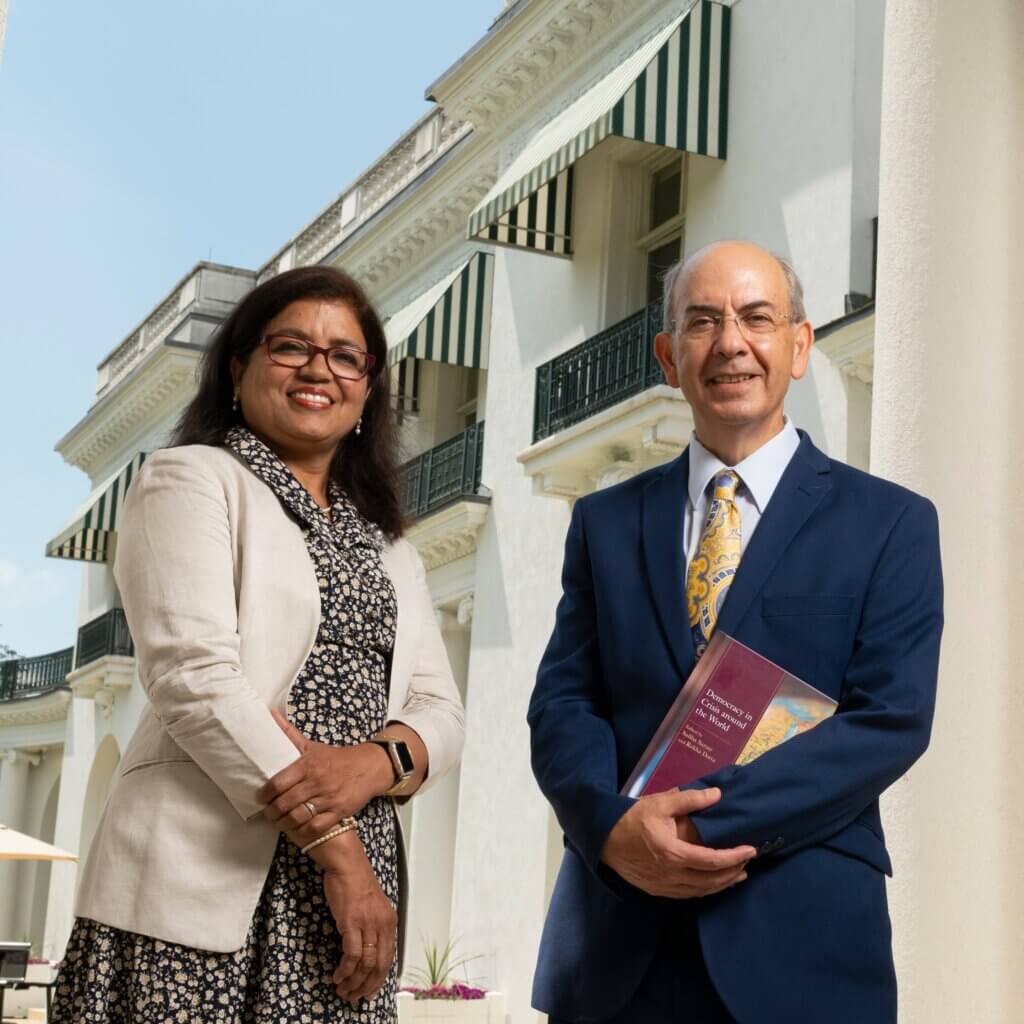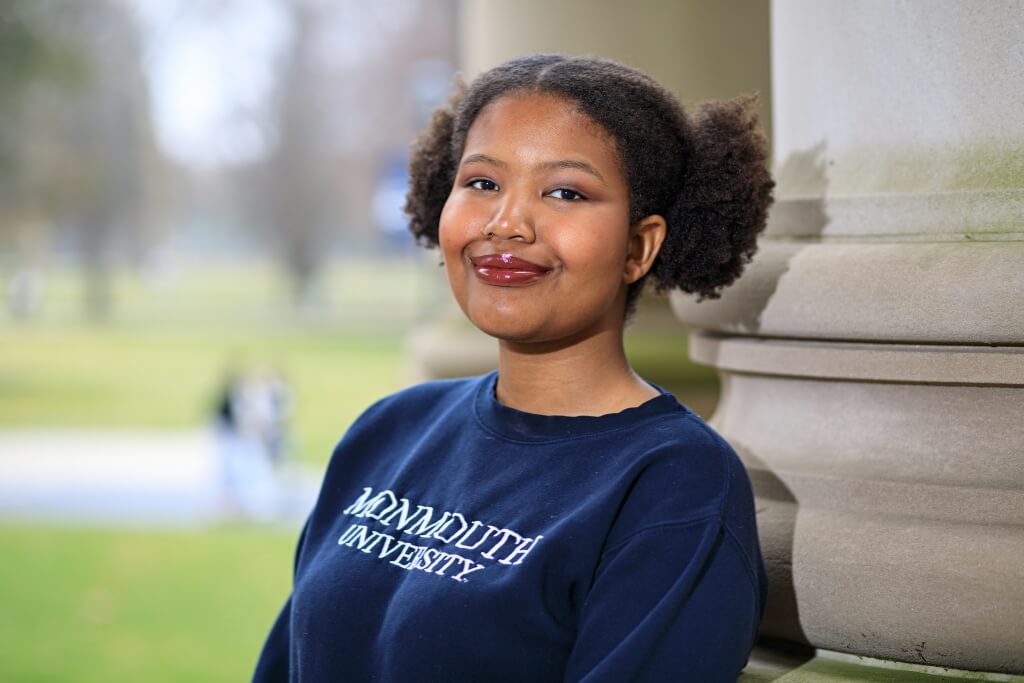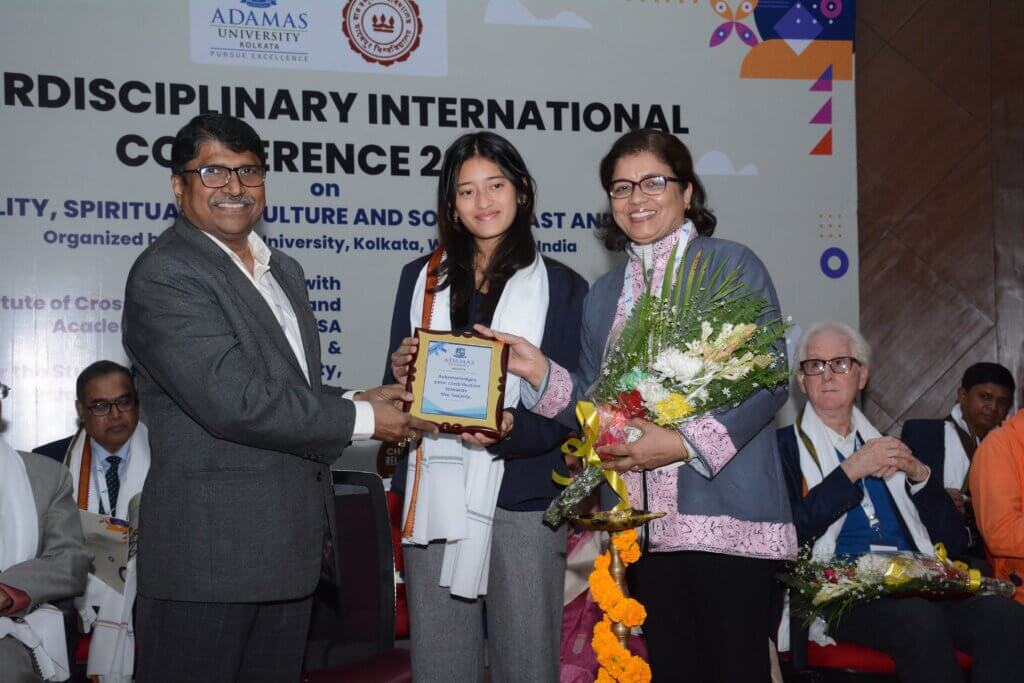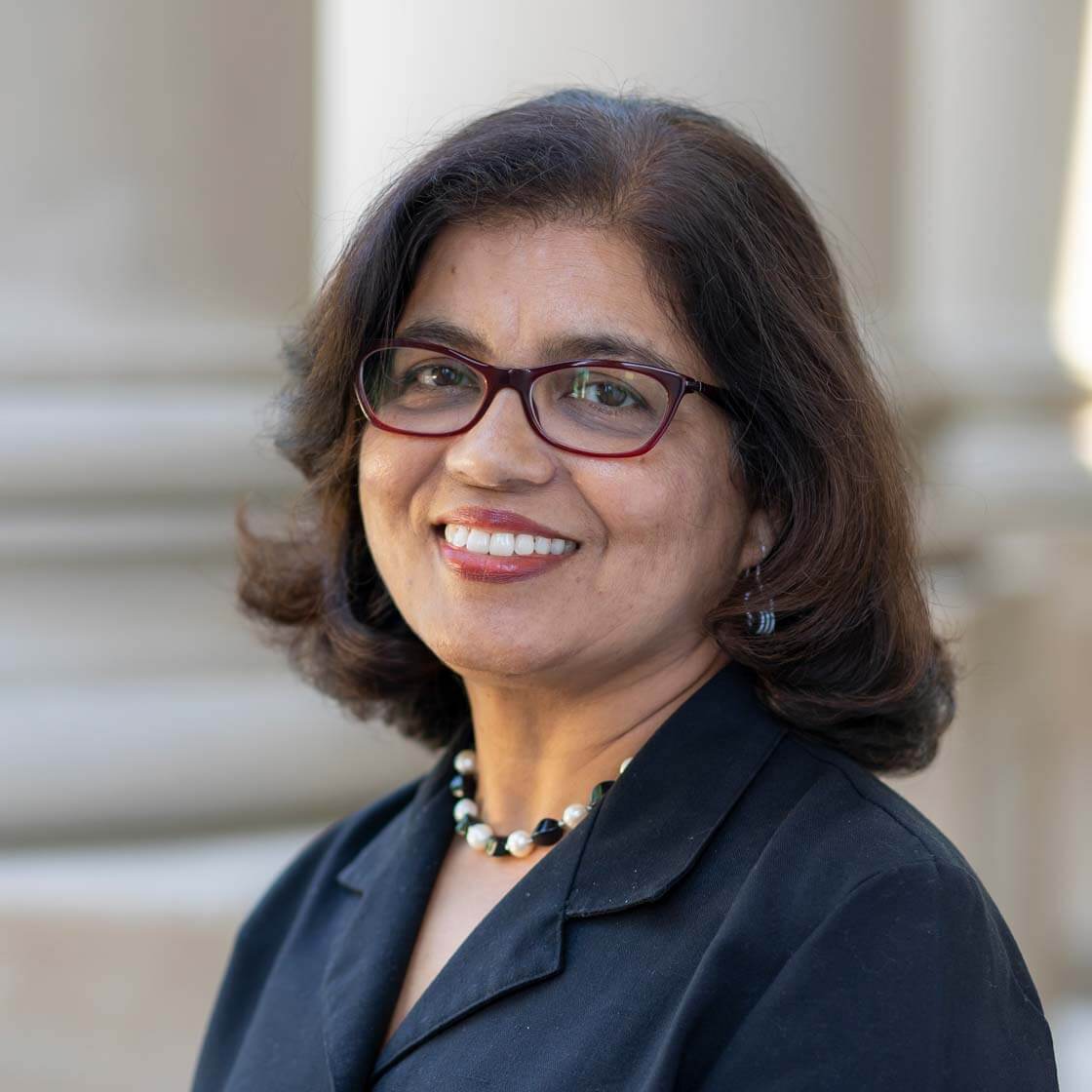
Rekha Datta, Ph.D.
- Professor
- Freed Endowed Chair in Social Sciences
Department: Political Science and Sociology
Office: Samuel E. and Mollie Bey Hall 249
Office Hours: Fall 2021
Monday/Tuesday 2:00 – 3:00 pm
Phone: 732-571-4438
Email: rdatta@monmouth.edu
Rekha Datta, Ph.D., served as interim provost and vice president for academic affairs on from 2019 to 2021. She joined the Monmouth University faculty in 1994 and was promoted to full professor in 2008. In addition to her role as a faculty member, she has held many administrative positions at Monmouth. From 2000 to 2010, she served as chair in the Department of Political Science. She was the founding director of the Global Understanding Project, an integral part of the Institute for Global Understanding at Monmouth University, which she also founded. She served as interim director of the Center for Excellence in Teaching and Learning from 2014 to 2015, and interim vice provost for global education from 2015 to 2016. From 2017 to 2018, she was a United States Senior Fulbright Scholar award recipient for research and teaching in India. She currently holds the Freed Endowed Chair in Social Sciences.
Datta has served as a first-year advisor and on numerous University committees including Faculty Council, the Academic Standards and Review Committee, the University Technology Committee, the Undergraduate Studies Committee, the Presidential Search Committee, the General Education Reform Taskforce, the Middle States Self Study, the Strategic Planning Writing Committee, the School Personnel Committee, and others.
Through the Institute for Global Understanding, Datta facilitated partnerships with the United Nations-DPI, the United Nations Academic Impact, and Project BAM, a mentorship program with Asbury Park High School in New Jersey. She serves on the board of Big Brothers Big Sisters of Monmouth and Middlesex Counties, and was formerly on the county board of the American Association for University Women as the public policy chair. In 2013, she founded Women and Girls’ Education International, a New Jersey-based not-for-profit organization providing educational support for marginalized women and girls.
An established scholar in her field, Datta has authored three scholarly books, numerous journal articles, and co-edited one collection of research monographs. Her work has appeared in more than 10 books in political science. She was also the principal architect behind the concept paper to establish the Monmouth University Polling Institute.
Known for her passion for teaching and pedagogic innovation in higher education, her work received national recognition in 2011 with the Outstanding Leader in Experiential Learning award from the National Society for Experiential Learning. She received the Global Visionary Award in 2012 and the Distinguished Teaching Award in 2003 from Monmouth University. In 2004, she received the Humanitarian of the Year Award from the Jersey Shore chapter of the National Conference for Community and Justice. From 2005 to 2006, she served as a member of the Higher Education Transition Team for the governor of New Jersey. She also served on the Committee on the Status of Representation and Diversity of the International Studies Association and is an affiliated faculty of the South Asia Center at the University of Pennsylvania.
Datta received her undergraduate education at the prestigious Presidency University in Kolkata (Calcutta), India. After earning an M.A. in political science at the University of Calcutta, she received her Ph.D. in political science at the University of Connecticut in 1990.
Education
Ph.D., University of Connecticut
M.A., University of Calcutta, India
B.A., Presidency University, Kolkata, India
Research Interests
Empowerment of Women, Comparative Politics, India, Pakistan, Political Development, Human Security, United Nations
Books
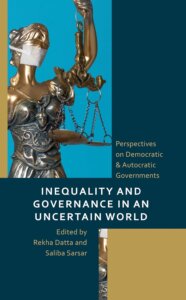
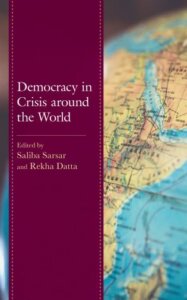
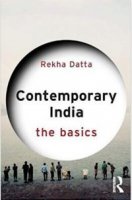
- Datta, Beyond Realism: Human Security in India and Pakistan. Foreword by Paul Rich, President, Policy Studies Review. (Lanham, Maryland: Lexington Books, Rowman Littlefield, 2008, 2010).
- Datta and J. Kornberg, Ed. Women in Developing Countries: Assessing Strategies for Empowerment (Boulder, Colorado: Lynne Rienner Publishers, 2002).
- Datta, Why Alliances Endure: The United States-Pakistan Alliance, 1954-1971 (New Delhi: South Asian Publishers, 1994; Reprinted by Academic Publishers, 2000).
Scholarly Articles
Selected Peer-Reviewed Book Chapters and Journal Articles and Book Chapters
- “Beti Bachao, Beti Padhao (Save the Girl Child, Educate Her): Policy, Culture, and Local Voices on Gender Discrimination, Gender-Based Violence, and Empowerment through Education and Economic Participation in Rural India,” Journal of Middle East and South Asian Studies, Vol.47, no.2, Winter 2024. 1-31.
- “Between Peaceful Co-existence and Realism: Understanding India’s Dilemma and Nuanced Position on Russia’s Invasion of Ukraine,” The Journal of Transdisciplinary Peace Praxis, Volume 4, #2, August 2022.
- “Class Dismissed: Lessons of the COVID-19 Pandemic for Remote Learning, Equity and Public Assistance for Higher Education in the United States,” in C. Raj Kumar, Mousumi Mukherjee, Tatiana Belousova, and Nisha Nair Ed. Global Higher Education During and Beyond COVID- 19, Springer: 2022.
- “The Millennium Development Goals, Gender Equality, and Empowerment in India,” in Vincenzo Mele and Marina Vujnovic Ed. Globalizing Cultures: Theories, Paradigms, Actions, (Leiden, Netherlands: Brill, 2015).
- “Teaching the UN through Experiential Education,” UN Chronicle, Vol. L, #4, 2013.
- “The United Nations, Peacekeeping and Development: Revisiting Western and Non–Western Norms of Conflict Resolution,” in Shantanu Chakrabarti Ed. Searching for Non–Western Roots of Conflict Resolution: Discourses, Norms, and Case Studies, (New Delhi: India: KW Publishers, 2013).
- “India and the World,” Chapter in Politics in India, Ed. R. Chatterji (New Delhi: South Asian Publishers), 2009.
- “Are Women Making a Difference? Assessing and Combating Violence Against Women in India and Pakistan,” Forum on Public Policy, Volume 1, Number 3, 2005.
- “Cultivating Global Understanding Through Campus-Wide Learning Communities,” by Mullinix, B. Datta, Rekha & Saldov, Morris in M. L. Ouellett (Ed.) Teaching Inclusively: Essays on Course, Department and Institutional Diversity Initiatives, (Stillwater, OK: New Forums Press, 2005).
- “Hum Honge Kamiyab (We Shall Overcome): Non-government Organizations, the State and Human Security in India,” in Ramesh Thakur and Oddney Wiggen. Ed. South Asia in the World: Problem Solving Perspectives on Security, Sustainable Development, and Good Governance, (United Nations: United Nations University Press, 2004).
- “From Development to Empowerment: The Self-Employed Women’s Association in India, International Journal of Politics, Culture, and Society, Volume 16, Number 3, Spring 2003.
- “Women, State, and Development in India,” in R. Datta and J. Kornberg, Ed. Women in Developing Countries: Assessing Strategies for Empowerment (Boulder, Colorado: Lynne Rienner Publishers, 2002).
- “On Their Own: Development Strategies of the Self-Employed Women’s Association in India.” Development, December 2000. Development, the Journal of the Society for International Development, is published by Sage Publications.
- “Children’s Rights as Human Rights: A Study of Child Labor in India,” in Sai Felicia Krishna-Hensel Ed. The New Millennium: Challenges and Strategies (Ashgate: 2000).
- Chanda and R. Datta, “Policies and Strategies of International Organizations in Combating Child Labor in India: A Win-Win Analysis,” in Handbook of Global Economic Policy, Ed. By Stuart Nagel (New York: Marcel Dekker, 2000). Note: Also appears in Super-Optimizing Examples: Across Public Policy Problems, Ed. Stuart Nagel (Connecticut: Jai Press, 2000).
- “Hindu Nationalism or Pragmatic Party Politics? A Study of India’s Hindu Party,” International Journal of Politics, Culture and Society, Volume 12, Number 4, summer 1999.
- “Gender, Leadership, and Development: A Profile of Indira Gandhi,” A Leadership Journal: Women in Leadership—Sharing the Vision, Volume 3, Number 2, spring 1999.
- “U.S. Security Policy in India and Pakistan and the Question of Nuclear Proliferation,” Journal of South Asian and Middle Eastern Studies, Vol. XXI, No.2, winter 1998.
- “Religion and Politics in Pakistan: An Experiment in State-Building,” R. Chatterji ed. Religion, Communalism and Politics: The South Asian Experience (New Delhi: South Asian Publishers, 1994).
Courses
Recently Taught Classes
2024 Spring
2023 Fall
- International Relations – PS 102
2023 Spring
2022 Fall
2022 Spring
2021 Fall
Frequently Taught Classes
- A Comparative Study of Women in the World (GS 377, PS 377)
- Comparative Politics in Asia (PS 373)
- Democracy in Asia and South Asia (PS 372)
- Early Political Thought (PS 221)
- International Relations (PS 102, PS 281)
- Introduction to Political Science (PS 101)
- Introduction to Political Science: Power and Globalization (PS 101)
- Modern Political Thought (PS 222)
- Political Theory I (PS 221)
- Political Theory II (PS 222)
- Reading and Research in Political Science (PS 299)
- Readings and Research (PS 599)
- Readings and Research in Political Science (PS 499)
- Seminar in Political Science (PS 401)

